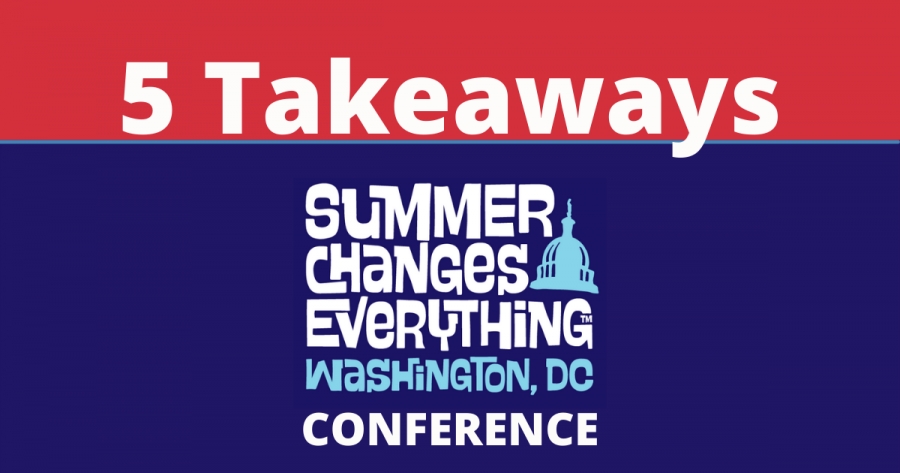Meanwhile, I’m sharing the five takeaways I gleaned from the National Summer Learning Association conference that I attended in early November. There I found resources to enhance program operations and planning, plus insight from an array of speakers who shared their wisdom and experience.
- Conferences are back! Congratulations to Aaron Dworkin and the entire NSLA team for creating an amazing and safe experience for OST professionals. I know so many of us were happy to see each other in person, exchange ideas and hear from the top education leaders from across the country on how to best support young people this upcoming summer.
- Federal funding is available, but not for all. While we know state education agencies and local school districts have received 30 Billion dollars to support afterschool and summer learning, not everyone has accessed these funds. I heard from various conference attendees that rural areas and community-based organizations are having difficulty obtaining funds for multiple reasons. However, the most common is that they did not have a relationship with their school district or could not reach the school administrators. If you are having trouble, reach out to your State Afterschool Network. Find contacts at Help Kids Recover.
- OST works. One of the featured speakers, Geoffrey Canada, President of Harlem Children’s Zone, drove home the point that we have to get this right. We have to help our students get back on track, or the significant investment we have seen in education will mean nothing. OST program providers know what works. We have been serving our communities through the COVID-19 pandemic, and we have always fueled our young people with academic support and enriching opportunities. This time is no different. Research supports our work, showing the benefits of afterschool and summer programs for our children, schools and communities.
- Quality costs money. We know what it takes to run high-quality programs, but our field holds back on the true cost of quality. Gina Warner, CEO and President of National Afterschool Association, said during her panel presentation, “It’s time to release ourselves from a scarcity mindset and help our partners - schools, funders, parents - understand what it costs to deliver high-quality services to young people. And we need to further let them know that a big part of that cost comes from increased wages and benefits for our staff.”
- Staffing continues to be a challenge. Staffing afterschool and summer programs has never been easy and is often one of the biggest challenges faced in OST. Still, if we continue to pay low wages for a position with only a limited amount of hours, we will never move past this issue. To support high-quality programming, we need high-quality staff, which comes at a price. That price is not just wages but benefits and professional development opportunities. For more resources on staffing, check out the NAA’s OST Leaders Guide to Equitable Hiring and Staff Development and Afterschool Alliance Recruitment Tool Kit.
By Angelica Portillo

